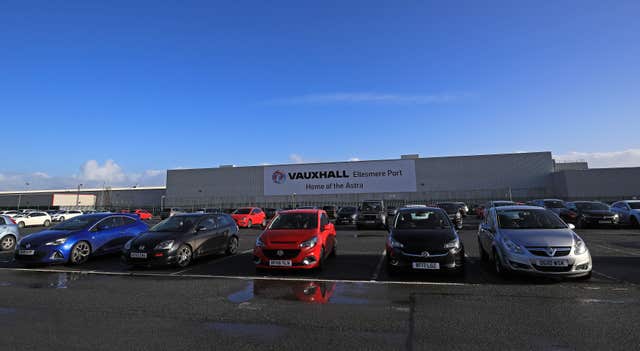
The boards of Fiat Chrysler and PSA Peugeot have announced fast-moving plans to merge the two companies creating the world’s fourth-largest vehicle maker with enough scale to confront “the new era in mobility”.
The merger would bring together Italian-American Fiat Chrysler, with its strong footprint in North America where it makes at least two-thirds of its profits, and France’s PSA Peugeot, the number two maker in Europe.
Both lag in China, despite the participation of the Chinese shareholder Dongfeng in PSA Peugeot, and are catching up in the transition to electrified powertrains.
The 50-50 merger is expected to create synergies of 3.7 billion euros (£3.2 billion), a figure the firms said they expect to achieve without any factory closures — a concern of unions in the UK, France and Italy where the makers have more model overlap.
The new company would have combined revenues of 170 billion euros (£146 billion), an operating profit of over 11 billion euros (£9.5 billion) and produce 8.7 million cars a year — behind Toyota, Volkswagen and the Renault-Nissan alliance.
The combined market capitalisation would be around 50 billion dollars (£43 billion).
Once a merger is finalised, PSA Peugeot CEO Carlos Tavares will be chief executive of the new company with Fiat Chrysler chairman John Elkann taking the role of chairman.
Fiat Chrysler CEO Mike Manley would have a senior executive role and work closely with Mr Tavares.
“This convergence brings significant value to all the stakeholders and opens a bright future for the combined entity,” Mr Tavares said in a statement.
Mr Manley called it “an industry-changing combination”, and noted the long history of co-operation with Groupe PSA in the industrial vehicle sector in Europe.
The 11-member board will be made up of five members from each company plus Mr Tavares, who is locked in as CEO for five years.
The firms said the new company would be able to meet the challenges of powertrain electrification, connectivity and autonomous driving “with speed and capital efficiency”.
The combined company will be able to share in the cost of developing those technologies with their “strong global R&D footprint”, they said, adding that will also save on investments in vehicle platforms and save money with greater purchasing power.
Both companies “share the conviction that there is compelling logic for a bold and decisive move that would create an industry leader with the scale, capabilities and resources to capture successfully the opportunities, and manage effectively the challenges in the new era in mobility”, the statement said.
The merger decision comes about five months after a similar deal with French rival Renault fell apart, mostly over French government concern about the role of Renault’s Japanese alliance partner Nissan. There were no signs of resistance to this deal, beyond concerns for jobs.
The companies said head offices would continue to operate in France, Italy and the US, and shares would be traded in the main exchanges in those three countries. The parent company would be based in the Netherlands, as is currently the case with Fiat Chrysler.
PSA Group’s ownership of Vauxhall has led to fears that the brand’s Ellesmere Port site is at risk as a result of the merger.

Speaking before the deal was approved by the boards of Fiat Chrysler and PSA Peugeot, Professor David Bailey of Birmingham Business School said the plant “could be sacrificed”.
He told BBC Radio 4’s Today programme: “The Italian government will be very keen to preserve capacity at Fiat in Italy and it’s also very underutilised at the moment.
“The French government is a part-shareholder of Peugeot so it will also be keen to maintain jobs and capacity in France.
“I have a real fear that if this merger goes ahead then the likes of Ellesmere Port, which is actually a very efficient plant, could be sacrificed to get the sort of savings that the company is looking for especially in the context of all the uncertainty over Brexit.”
Car manufacturers around the world have been hit by a reduction in sales, with UK car production for the first nine months of the year at its lowest level since 2011.
Figures from the Society of Motor Manufacturers and Traders (SMMT) show 989,174 cars were produced in the UK in the first three quarters of 2019, representing a 15.6% deficit year-on-year.
The SMMT said the continued threat of a no-deal Brexit has caused investment in the industry to stall.

Enjoy the convenience of having The Sunday Post delivered as a digital ePaper straight to your smartphone, tablet or computer.
Subscribe for only £5.49 a month and enjoy all the benefits of the printed paper as a digital replica.
Subscribe